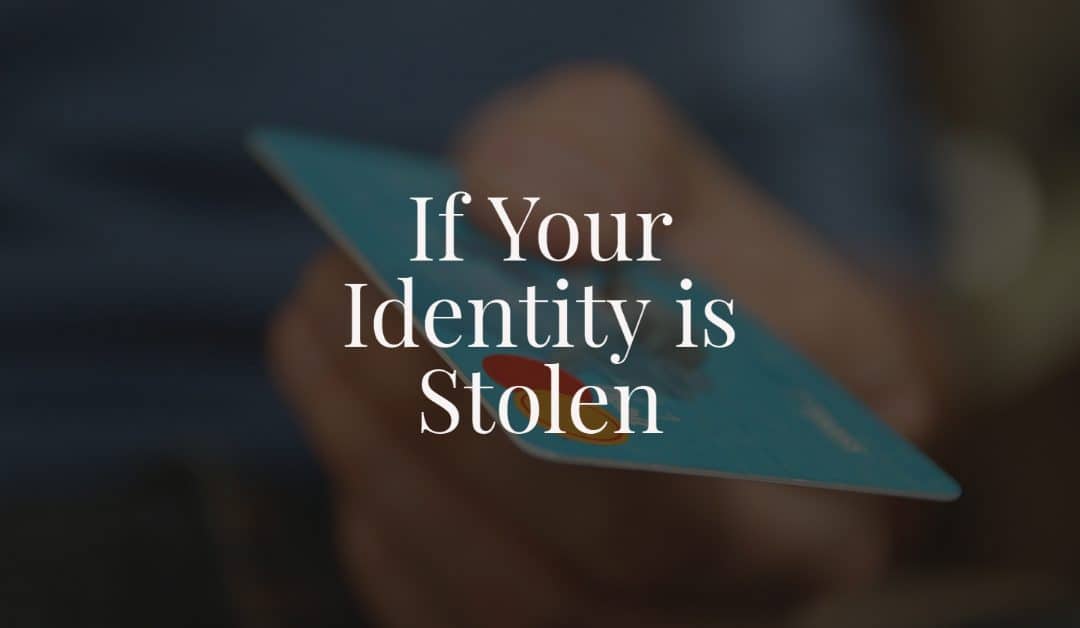If you find a credit card charge for something you did not buy, or receive a bill from a company you do not recognize, your identity may have been stolen. It is actually not that uncommon for this to happen in the US.
According to IdentityForce.com, “In 2019, 14.4 million consumers became victims of identity fraud — that’s about 1 in 15 people. Overall, 33 percent of U.S. adults have experienced identity theft, which is more than twice the global average.”
You are probably wondering if you are liable for charges and hoping that there aren’t more issues you haven’t seen yet. Maybe you are thinking about how to prevent this from ever happening again.
Self recriminations will not help, but there are ways to prevent identity theft and fraud and protect yourself in the future. Let’s look at the steps to repair your financial situation and/or stolen identity.
Credit Card Fraud
If you found a charge that you never made on a credit card, call the number listed on your statement for the company that you owe. Ask them what the charge is for and when it was incurred. Was it a local Home Depot? Was it an out-of-state amusement park?
If you find out someone else made the charge, let the company know. Immediately call your credit card company and go through the process of disputing the charge if it’s not yours. Most credit card companies have processes to work with you if you did not make the charge on your card. In most cases, they will delete the purchase from your card and then put a stop on your card.
They will then usually send you a new card with a new credit card number for making future purchases.
Only Credit Card Fraud?
If your credit card is the only breach in your financials, the fraud may only be of a credit card number and not of your identity. However, be careful in the future of who has your new credit card number.
Do not send pics of your credit card or make purchases online with it unless you know that you can trust the buyer.
It is always better to use PayPal, Venmo, or some other encrypted buying service if you are unsure about the person or company you are buying from.
Make sure to use 2 step verification to protect your online credit services for payment and also your login for your banks and credit cards.
Steps to Take If Identity is Stolen
If you call a company where the charge occurred and find out that your ID was used to make a new account, someone is using your identity. This means that they somehow have your social security card/number or a lost or stolen ID card or driver’s license.
If this is the case, you must take immediate action to prevent further abuse of your identity.
- Call and speak to the company and let them know that the bill or account is fraudulent
- Report incident to the FTC at IdentityTheft.gov
- You must also make a report about what happened to each of the 3 credit reporting agencies: Equifax, Experian, and TransUnion. Learn more about ordering reports at ConsumerFinance.gov.
- You can also place a credit freeze or fraud alert on your identity at the credit monitoring agencies to keep your identity safe in the future.
- Report what happened to the police department of the area where the fraud occurred. You might have to search online to find the police department that would be in charge of your case.
- Close any other new accounts that have been opened in your name that have false charges on your account and let them know what has happened and dispute the charges.
- Continue working with companies until they are willing to correct your credit report. If a company has been presented with evidence that you do not owe the bill, but they continue to push for payment, you may need an attorney.
- If someone used your Social Security number to commit fraud, you will need to call Social Security and let them know what has happened.
- You may need to replace your driver’s license or other identity cards if they are being used to commit fraud.
Other Clues That Someone Has Stolen Your Identity
There are other ways to know that your identity has been stolen. You must take steps to secure your identity if any of these situations noted by the FTC below apply to you:
-
You see withdrawals from your bank account that you can’t explain.
-
You don’t get your bills or other mail.
-
Merchants refuse your checks.
-
Debt collectors call you about debts that aren’t yours.
-
You find unfamiliar accounts or charges on your credit report.
-
Medical providers bill you for services you didn’t use.
-
Your health plan rejects your legitimate medical claim because the records show you’ve reached your benefits limit.
-
A health plan won’t cover you because your medical records show a condition you don’t have.
-
The IRS notifies you that more than one tax return was filed in your name, or that you have income from an employer you don’t work for.
-
You get notice that your information was compromised by a data breach at a company where you do business or have an account.
Credit Monitoring in 2020
Starting in 2020, everyone in the U.S. can get 6 free credit reports per year through 2026 by visiting the Equifax website in addition to the one free Equifax report (plus your Experian and TransUnion reports) you can get at AnnualCreditReport.com.
You can learn more about your free reports at the Federal Trade Commission’s website and the Consumer Financial Protection Bureau’s website.
Debt Collectors & Debt Buyers
There are laws to protect you from harassment and false debts. If you are dealing with a debt collector or debt buyer, It’s important to send letters as soon as you find out about the debt asking for verification of the charges.
Some debt collector companies have been known to send false debt information or send a bill to the wrong person.
Before you send, take a pic or make a copy of your letter. In some states, you have 30 days by law to get information about the debt from the debt collection company.
Check Your Statements & Bills
Make a regular time each month to sit down and review your monthly bills. Look for any extra charges that you don’t recognize and call the phone number listed to dispute any charges that are not yours immediately.
Every other month, pull your credit report and look through it to make sure there are no fraudulent accounts under your name.
Find Help
There are laws in place to protect you, the consumer, from companies that will not honor your rights. If a company refuses to work with you to delete fraudulent charges or harasses you in order to collect payment for a debt you did not incur, contact one of our Law Zebra Consumer Rights Protection Attorneys to find out how we can help you.
We help people all the time who are struggling to fight against companies that are using scare tactics and lies to extort money. We work with the specific laws that deal with these types of situations daily and we want to help you escape any unfair treatment, recover your identity, and be able to move forward in your life.

